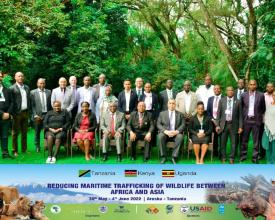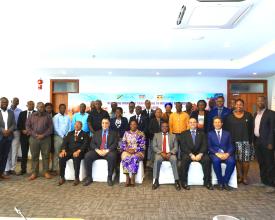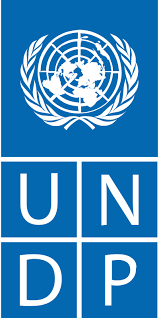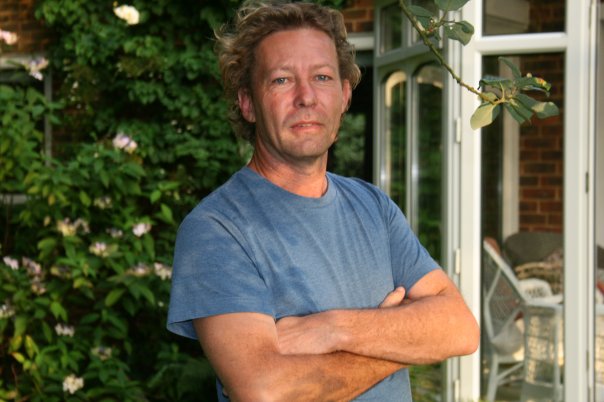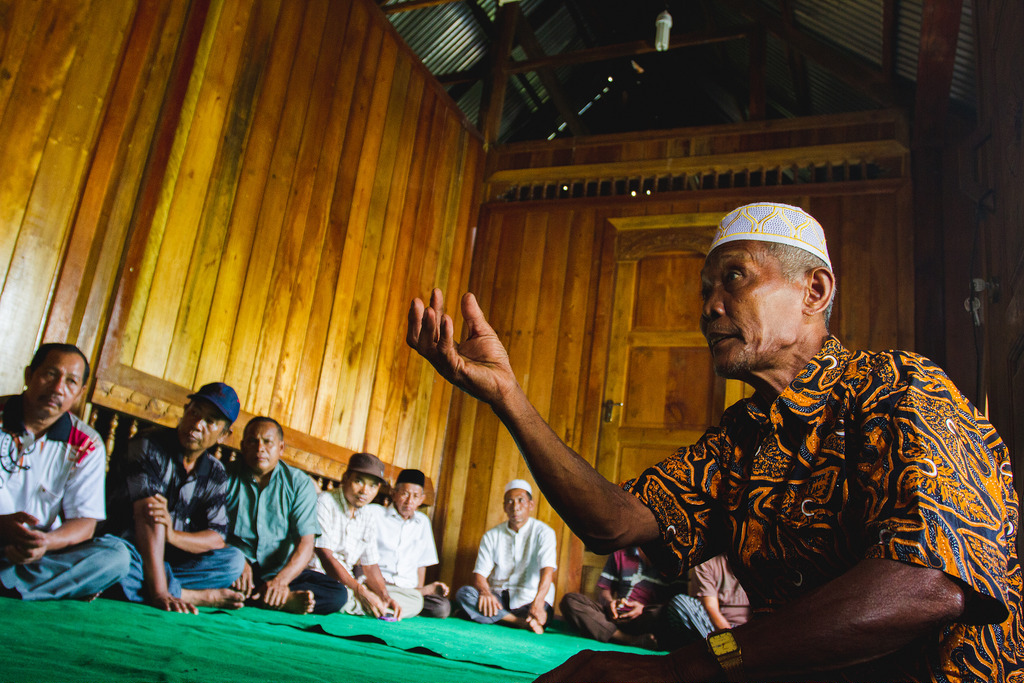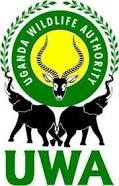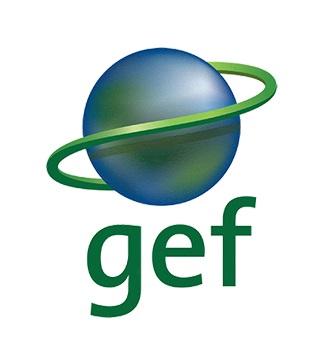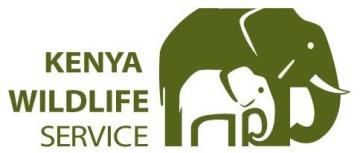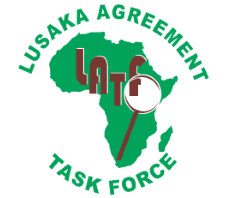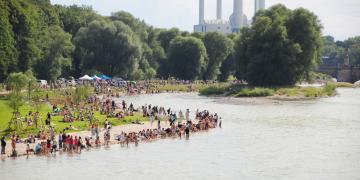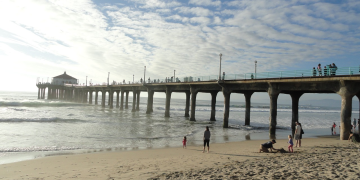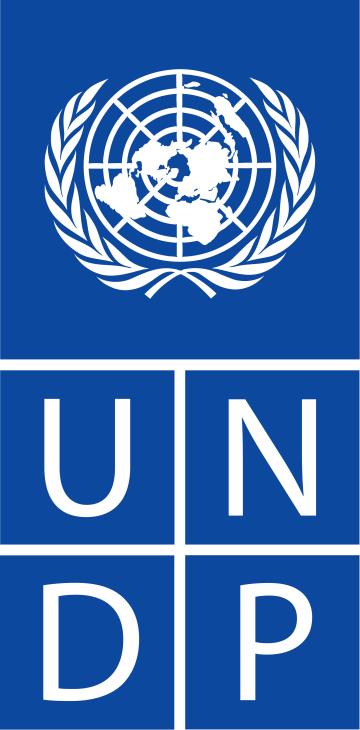
Follow the money: How financial investigations can help in the fight against the illegal wildlife trade
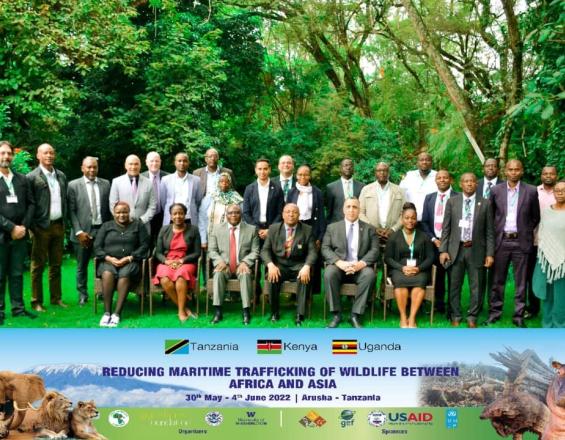
The illegal exploitation of the world’s wild flora and fauna is a serious and growing problem globally. It impacts negatively on economic and social development, security and governance. Wildlife and forest crime have all the hallmarks of transnational organized crime and is frequently linked to other forms of serious crime such as fraud, corruption and money laundering. It creates huge criminal profits. Part of the Global Wildlife Program's response to wildlife and forest crime through the UNDP-GEF-USAID project “Reducing Maritime Trafficking of Wildlife between Africa and Asia” is to help tackle the financial flows targeting the way in which the organized criminal gangs pay the operational costs of poaching or illegal logging. The profits from these crimes also have to move across borders and continents and so by bringing together law enforcement, financial intelligence units, prosecution and the private sector (in particular financial institutions), investigations can be conducted with greater success.
Context
Challenges addressed
Wildlife crime is a complex, global problem that needs to be addressed through various strategies. One of the challenges is that financial investigation and asset recovery techniques are still rarely used by law enforcement officers in the EAC when dealing with wildlife crime, resulting in low conviction rates. This is an obvious capacity gap in wildlife crime law enforcement in the region. Despite recent efforts to close this gap, current availability of training remains below the actual needs of government agencies. A recent survey by GFF among law enforcement officers of the Lusaka Agreement Task Force found that 95% of officers in Kenya, Tanzania, and Uganda have limited knowledge and skills on financial investigation and asset recovery techniques and would benefit from trainings. Enhanced capacity for specialized investigative units such as Financial Investigation and Asset Recovery Units, and Customs, Wildlife and Forest Authorities and Police is invaluable for wildlife trafficking cases.
Location
Process
Summary of the process
Forensic accounting serves as a key investigative tool for generating leads, uncovering illegal wildlife trafficking operations, and providing evidence for eventual prosecutions. Once the investigation has identified a suspect (or suspects), multi-jurisdictional cooperation is essential to ensure perpetrators are arrested and brought to justice. Finally, uniform sentencing and an informed judiciary are vital in preserving the deterrent effects of interdiction, and in removing the profit motives from illegal wildlife trafficking.
Building Blocks
Forensic accounting for wildlife trafficking interdiction
Wildlife crime is not purely a conservation issue, as its adverse impacts also threaten sustainable development, good governance, rule of law, and national security.
The aim of this building block is to identify the risks and vulnerabilities of money laundering and how it relates to wildlife crimes. Additionally, this building block endeavours to provide guidance and recommendations to law enforcement and related personnel to enhance the financial aspect of wildlife crime investigations.
Fraudulent paperwork can transform wildlife contraband into seemingly legitimate merchandise, enabling it to be openly traded and evade interdiction. There are many schemes that criminals use to create fraudulent wildlife paperwork, including false declarations of captive breeding, purchasing paperwork from corrupt officials, forging paperwork, re-using or altering old permits, etc. Forensic accounting is therefore an important building block
Enabling factors
Transnational organised crime is found wherever money can be made from illicit dealings, and well-organised criminal groups have turned illegal exploitation of wildlife into a professional business with lucrative revenues. Criminal groups exploit gaps in legislation, law enforcement and the criminal justice system; and the generally weak legislation and inadequate law enforcement in wildlife protection has enabled wildlife criminal groups to flourish. Forensic accounting allows practitioners to close these gaps and bolster wildlife protection.
Lesson learned
In order to capitalise on enhanced forensic accounting, complementary legislation should enable wildlife crime to be considered a predicate offence for money laundering, so that anti-money laundering tools can be used. Governments should review their criminal legislation to ensure that law enforcement agencies are fully authorised to follow the financial flows related to wildlife crime and to prosecute money laundering offences.
Domestic multi-agency cooperation should be common practice for wildlife crimes, involving police, customs, environmental authorities, Financial Investigation Units (FIUs), prosecutors, and other relevant domestic agencies for sharing information, intelligence, and conducting joint investigations where appropriate. Joint investigative teams which include FIUs are essential to target criminal networks and not just low-level offenders, and have long been used successfully to address other serious crime types.
Cooperation – Enhancing information sharing across jurisdictions
Multi-jurisdictional cooperation is a key element of wildlife protection and illegal wildlife trafficking. Strategies to reduce the pressurse of illegal and unsustainable trade on biodiversity - and enhance the benefits to wildlife conservation and human well-being that derive from trade at sustainable levels - require cooperation between conservations, law enforcement, customs, and private industry.
Enabling factors
- Cross-jurisdictional comparisons of wildlife trade trends, patterns, impacts and drivers to bolster the knowledge base on trade in wild animals and plants.
- Policy-level work to inform, support and encourage action by governments and international bodies to adopt, implement and enforce effective policies
Lesson learned
Effective information sharing through formal and informal networks can result in high-level conviction and seizure of assets.
Once a baseline level of cooperation is established, individual nations should implement legislation to enable wildlife crime to be treated as serious and organised crime according to the UN Convention Against Transnational Organized Crime (UNTOC), with penalties of four years or more in prison. Sentences should punish the offender to an extent that is justified by the circumstances, and be comparable with sentences applied to other serious crimes. Sentences should provide conditions that will help the offender to be rehabilitated, deter the offender and other persons from committing the same or a similar offence, and make clear that the community denounces the sort of conduct in which the offender was involved.
Information exchange between law enforcement agencies, FIUs, financial institutions, and civil society should be encouraged, to share knowledge, identify targets and patterns of behaviour, and more effectively mitigate wildlife crime risks.
Uniform sentencing
Country-level contexts are important to take into consideration as part of efforts to prevent illegal wildlife trafficking. It's really important to bring all the relevant stakeholders together to compare notes, share innovations, and ensure that sentencing guidelines are harmonised within and between jurisdictions. This can be bolstered by trainings and capacity building at the regional and international levels.
Enabling factors
Having a knowledgeable judiciary can help establish uniform sentencing, and underscore the point that sentences for wildlife-related crimes seldom reflect the killing of a single animal, but rather must address the damage that wildlife trafficking can do to ecosystems, economies, and the rule of law.
Lesson learned
This work has shown that it's important to bring all the relevant stakeholders together. The trainings as part of this solution have brought together law enforcement, prosecutors, and the judiciary, all of which are crucial in effective interdiction and enforcement.
Impacts
The goal was to leverage the expertise of law enforcement, academia, and governments to facilitate capacity building, training, and awareness efforts to:
- Develop strategic partnerships among key cross-sector stakeholders.
- Increase collaboration between law enforcement agencies and national governments.
- Improve methods and provide transparency around best practices in combating environmental crime.
- Enhance intelligence sharing and interagency cooperation.
Demonstrated positive impacts include:
1. Developed cooperation with other relevant initiatives in the East African Community
2. Conducted detailed training curriculums based on the specific identified needs
3. Conducted Basic and Advanced Training Workshops for key stakeholders in Kenya, Tanzania and Uganda
4. Organized follow-up mentoring remotely and in person
Beneficiaries
The beneficiaries for this work include: wildlife, local communities, and broader national/global stakeholders that benefit from protecting these species.
Sustainable Development Goals
Story
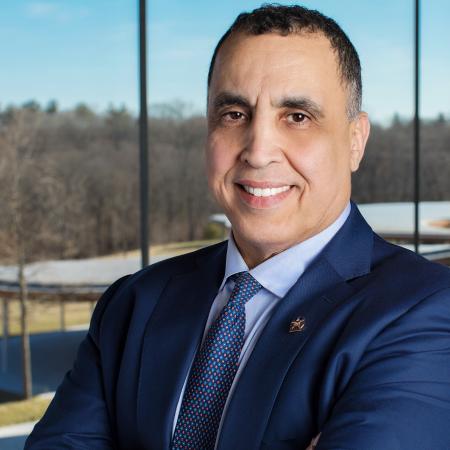
Question 1: Can you just tell us about your work?
My name is Rod Khattabi. I'm the Chief Accountability Officer and the Justice Initiative director for Grace Farms Foundation. I have a background in federal law enforcement and started my career with the IRS as a special agent investigating financial crimes - tax evasion, money laundering - that was my expertise. I then transferred as a Special agent to the United States Customs Service and then the United States Department of Homeland Security. Now I work with Grace Farms Foundation to run their justice initiative, mainly to combat human trafficking and environmental crimes.
Question 2: Why did you start using financial investigations to fight the illegal wildlife trade?
I never really worked on wildlife crimes until 2016. I went to South Africa with my friend Mark Fowler (his father was Jim Fowler, who co-hosted the popular television series, Mutual of Omaha’s Wild Kingdom) and he said to me, let's go to Kruger National Park. When we got there I saw some killings of animals, and then we were talking with the South African police about what happened and they said ‘you might want to work. Help us out. Work on wildlife trafficking because you have this experience in fighting organized crime that could help us.’ That’s where it started.
Question 3: What do financial investigations have to do with illegal wildlife trafficking?
There's a lot of money involved in wildlife trafficking.
The poachers are bad guys in one sense, but some of them are just surviving, trying to make a living and trying to make ends meet. They're not doing it because they want to do it. They do it for the money. It's all about money. You really can change the whole system with money.
The major culprits are the ones that are making tons of money on the illegal wildlife trade. And that's the reason you have to be involved in a financial investigation. To find those that are at the top of this organized crime. Those are the ones that set this up. They set up schemes, routes they use, they launder the money either through couriers, through trade-based money laundering, and since it involves such gigantic amounts of money, so you have to go after the money. They're more afraid of their assets being seized than being in prison because they know even when they’re in prison, they can still function. But if you take the money, you disrupt the whole flow. You disrupt the whole organization and hopefully you will eliminate this organization.

